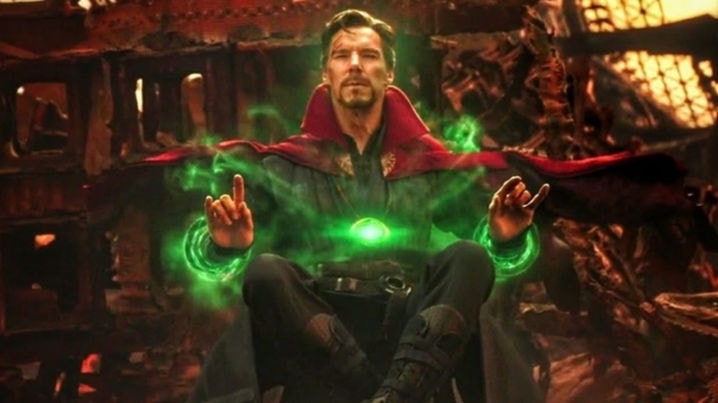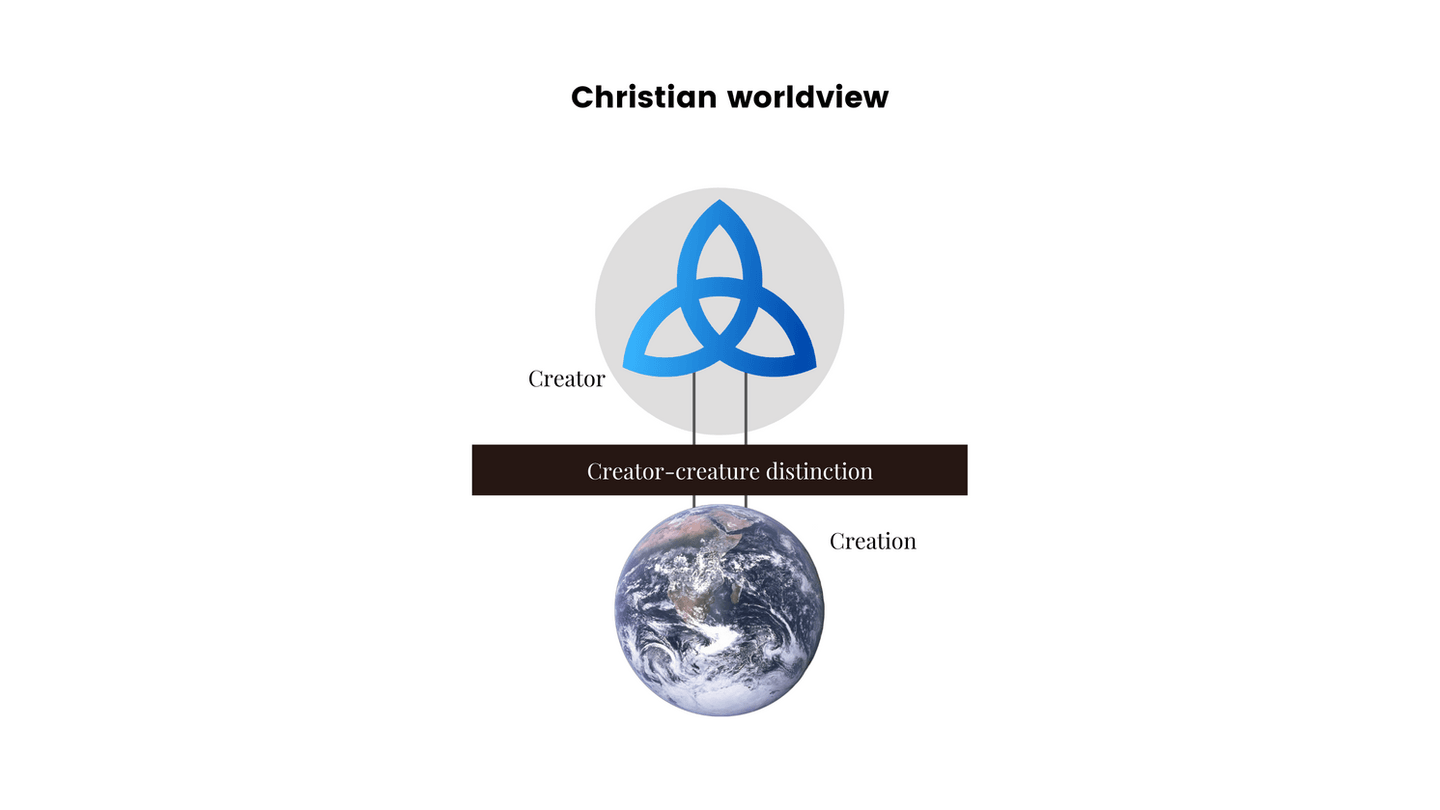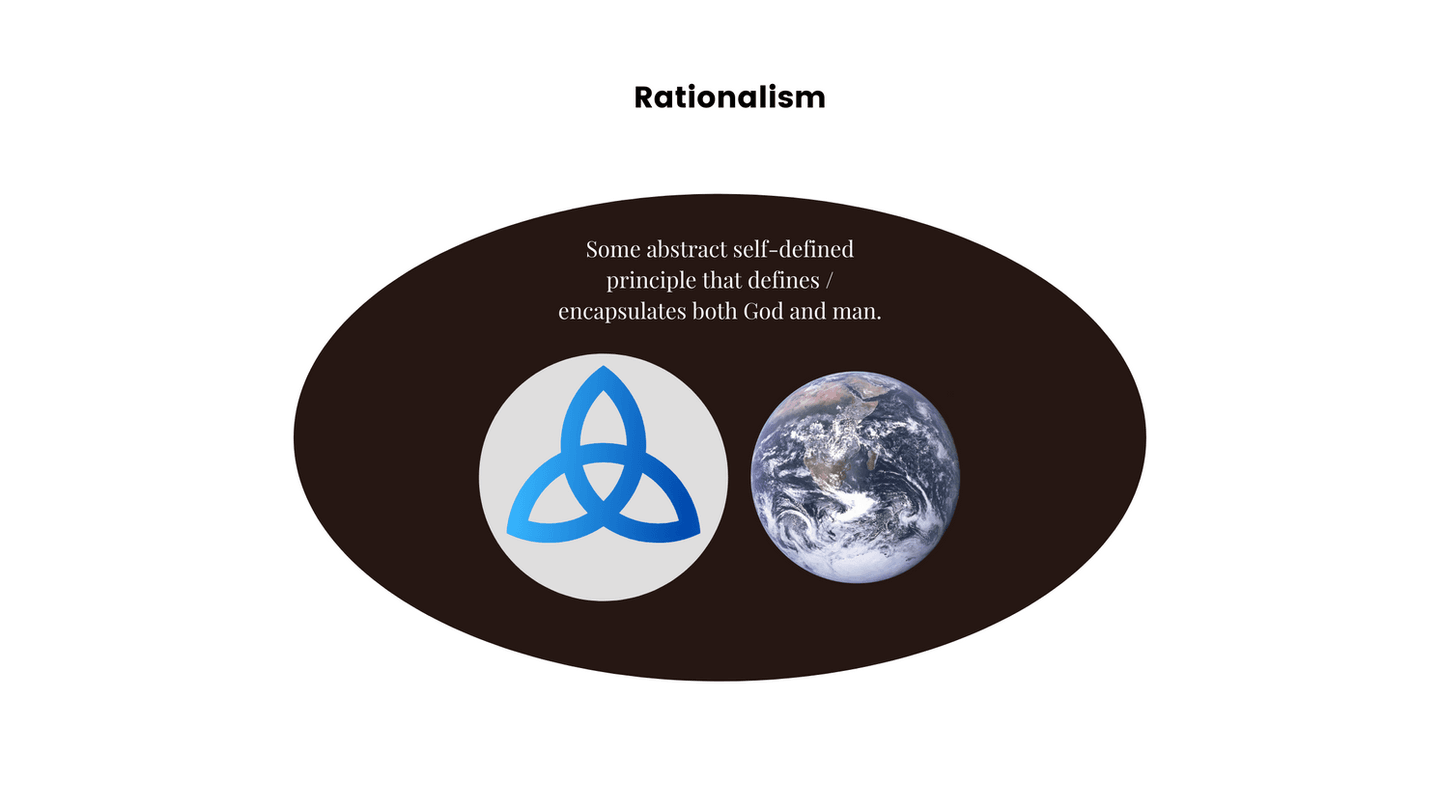Dr. James White and Dr. Tim Stratton recently debated whether Molinism is Biblical. It certainly was an enjoyable (as well as lively) debate and can be viewed here. In the cross-examination period when White was asking Stratton questions, Stratton resorted to using the Avengers movies (specifically Infinity War, and Endgame) as an analogy for understanding the Molinist conception of God's providential control and His (supposed) middle knowledge. His exact words at some point were: "Go watch the movies and it will be clear."
In order to explain what Molinism is, we, therefore, need to discuss God's knowledge. In our recent article on Calvinism and human freedom, we (following the Reformed tradition) distinguished between the logical moments of God's natural knowledge and God's free knowledge. (I'd also recommend people go read the linked article for a more in-depth discussion, as what is going to be presented here will build on what has been already said in the prior article).
God's natural knowledge is the knowledge that is His by nature. This knowledge includes all that He can possibly accomplish (or create). At the logical point of creation, we find God's free knowledge. This knowledge flows from the decree to create and comes from God's natural knowledge. God's free knowledge contains His knowledge of all events in creation.
We wrote: Another way of stating this is to say that God never learns anything new. His knowledge of Himself and what He can accomplish (His natural knowledge) is exhaustive, and His knowledge of creation (His free knowledge), flows from His natural knowledge when He decided to create, and hence is also exhaustive from the point of creation [1]
We also attempted to demonstrate that Christians, based on the authority of Scripture, must hold to the following statements, and we're not allowed to :
God providentially controls whatsoever comes to pass.
We are responsible for our actions.
Middle knowledge
Molinists are concerned to preserve what they also consider to be two vital beliefs as outlined above. However, unlike Calvinists, the Molinists want to maintain libertarian freedom in their equation as they are incompatibilists: According to them, divine determinism is incompatible with moral responsibility. They believe that an action can only be a morally responsible action if the antecedent (prior) conditions are not sufficient to causally determine an action to take place. Therefore, indeterministic freedom (or libertarian freedom) means that any person in a given set of circumstances has the power to choose option A or not option A, where A is any given moral choice. This is called the categorical ability to do otherwise.
Given God's universal providential rule and purposes in creation, how is it possible to hold to this kind of freedom? Enter middle knowledge.
The Molinist way of attempting to keep all this together is to suggest that there existed, besides God’s natural knowledge and His free knowledge, a third kind of knowledge. They argued that God also has “middle knowledge” (as it's between God's natural knowledge and God's free knowledge). What follows is a short explanation of middle knowledge:
Given a whole array of possible worlds (that God knows), given worlds in which men and women were free in the relevant indeterministic sense, God knows what they would freely choose in every possible circumstance. God has knowledge of all such possible outcomes. If placed in one set of circumstances, God knows what Jones would freely choose. If placed in another set of circumstances, God knows what Jones would freely choose. This is true for all possible people and all possible circumstances. God has this middle knowledge by inspection of all the possibilities that the free will of each person might choose. This has commonly been called the "counterfactuals of human or creaturely freedom". Counterfactuals usually take the form of "If A, then B would C". For example, "If I were wearing a white shirt right now and not a black shirt, I would not freely choose to write this article now". [2]
Between what could be [natural knowledge] and what will be [free knowledge] lies what would be [middle knowledge] [3].
Dr. Strange vs. Thanos
In Avengers: Infinity War, the Avengers were fighting the most vicious enemy we've ever seen on the big screen: Thanos. Thanos was extremely powerful, evil, and wanted to wipe out half of the universe using infinity stones. The details of the movie are not important. What is important is how the Avengers managed to defeat Thanos.

The odds were so stacked against the Avengers, that they struggled to find a way to beat Thanos for most of the film. As part of the strategy, Dr. Strange used the time stone (that controls time) to look into the future. He saw over 14 million possible ways that the fight with Thanos could go, with only one out of the 14 million possibilities ending in victory for the Avengers, and defeat for Thanos.
Knowing now what must be done to defeat Thanos, Dr. Strange sacrificed himself and allowed Thanos to complete his destruction, knowing that the course of events he just set off will eventually end in victory and that those who died will be raised from the dead again. Avengers: Infinity War ends with Thanos seemingly victorious, however, in the sequel titled Avengers: Endgame, the Avengers emerge victoriously with all the people who were lost among the way being restored to life.
Dr Stratton believes that this analogy is very useful for understanding the Molinist conception of God. It should be clear, he says, that although Dr Strange actualized a universe where half of the people would die (and not all of them will be raised again), the evil that happens is the evil of Thanos and Dr Strange is not to be blamed for it, but rather praised for actualizing the particular universe where Thanos will be defeated.
This analogy is not a new one Tim Stratton invented it for the debate with James White. He made a video about it previously (where he takes the analogy even further than he did in the debate):
Problems with this analogy abound if we try to use it to understand the Christian God.
Libertarian freedom
It remains to be demonstrated how Dr Strange is able to know the future libertarian free choices of Thanos given that they're exactly that - libertarian. There is nothing that necessitates Thanos to make one particular decision over another. In a deterministic universe, Dr Strange's trick might have worked as he could set the universe on a predetermined course. However, if we insert libertarian freedom, what Dr Strange saw might have been nothing more than a simulation (some Molinists actually use the word simulation when they're trying to describe middle knowledge [4]) of reality, and not reality itself.
That is to say, in the one timeline he saw where Thanos was defeated, it was because Thanos made a particular string of unfortunate libertarian free choices [from his perspective]. But if you run the same simulation again, he might make totally different choices precisely because he's free in the libertarian sense.
At best what Dr Strange was able to determine by running these simulations, was that they have a 1/14,000,000 chance of defeating Thanos given a particular course of action. That's not very helpful to the Avengers.
We maintain that the concept of libertarian freedom is incoherent, as argued in our previous article.
That it is possible to know that which is free and uncertain in itself is impossible, as Geerhardus Vos notes in his Reformed Dogmatics:
... [Whatever] is free and uncertain in itself cannot be the object of knowledge, nor can it be a particular kind of knowledge.
Geerhardus Vos, Reformed Dogmatics I, p. 19
The source of the knowledge
Even if we grant that somehow it is possible to know future libertarian choices, another problem of the Molinist is highlighted in the analogy. Notably, the knowledge of the future free choices of Thanos and others came from outside Dr Strange. That is Dr Strange had to learn new information about how other free creatures might act in any given circumstances, and adjust himself accordingly.
The question then becomes is whether middle knowledge is in any way analogous to the knowledge that Dr Strange gained by looking through the corridors of time.
Molinism claims that free and contingent effects (e.g. the libertarian free choices of men) are known by God as things independent of divine causality. The truth values of middle knowledge (counterfactuals) are determined neither by God’s nature [natural knowledge] nor by God’s will [free knowledge]. They are, in a real sense, brute facts that are imposed upon God, such that God has to take them into account when formulating his eternal decree. In the same way, Thanos delimited the possible actions Dr Strange could take, so (according to Molinists) creatures delimit God. Although the Molinist does not believe God "looks down the corridors in time", the analogy is still useful, the type of knowledge Dr Strange gained is akin to the middle knowledge God already has.
But, this would make God and the perfection of His knowledge dependent upon that which is not God. Just as no creature can be in the world apart from the divine causality, neither can it be known what a creature would do if they were in the world apart from the divine causality. To say otherwise would necessarily presuppose a God whose knowledge is dependent upon the creature and a creature who is in some respects independent from God, both of which are metaphysically impossible and biblically incoherent [5].
We must note that the natural knowledge and the free knowledge of God as defined by the Reformed find their origin in the being of God. That is to say, what is possible and what is actually in creation ultimately find its ground in God and is what it is because of the will of God. There is nothing next to or over God that delimits Him in any fashion other than Himself (or His own nature). This truth is implied by the Creator-creature distinction.
Basic to the Christian worldview is the Creator-creature distinction:

In the above image, the Creator is illustrated as completely distinct from creation. The dependence that exists goes one way: The creation is completely dependent on the Creator for its continued existence, and also on concursus (that is God's concurrent working with secondary causes) for its continued working. In our previous article, we wrote: "At this point, we can introduce the doctrine of concursus. Similar to God's creation and preservation, concursus refers to the workings of the things of creation given their existence. Concursus refers to the simultaneity of divine and human agency in specific actions and events. Just like creation cannot exist (maintain itself) without preservation, second causes cannot work without concursus." [6]. To assert middle knowledge is to do away with this distinction and embrace a non-Christian view of reality.
... If God must expect an increase in His knowledge of things outside Himself, if He must, as it were, take up the influence of the temporal, then this destroys His eternity.
Geerhardus Vos, Reformed Dogmatics I, p. 19

Using Dr. Strange as an analogy for understanding the relationship between creaturely freedom and divine providence is akin to rationalism. That is to say that Creator and creature are on the same plane of existence, and exist in a give-and-take relationship with each other, and both are dependent on forces outside of their control. In the case of Dr Strange and Thanos, it would be a principle of chance. In the case of libertarian freedom of creatures, it is also a principle of chance.
When pressed on this, Molinist usually retorts to one of two defences (they might be related).
God necessarily has this knowledge as He is omniscient.
The knowledge does not come from anywhere. It just is.
Neither of these answers is satisfactory.
In both cases, the response does not engage with the critique that there somehow exists a body of knowledge independent of God's nature and God's will that somehow delimits Him. If the Molinist wants to make such a claim, the Molinist must show from Scripture how God is not the self-sufficient and self-contained Creator of the universe. And once this has been shown, we can throw away our Bibles as it would entail that everything is ultimately shrouded by the mystery of chance.
Elevating the creature
We can build on the above objection and make another concerning implication more explicit.
Bringing this back to Dr. Strange and Thanos: Thanos almost had the Avengers beat. That only 1 out of the 14 million possibilities ended in victory is astonishing. Thanos came incredibly close to frustrating the purposes of the Avengers, and if it were not for story-telling purposes, there might just as well not have been any world where the Avengers could emerge victoriously!
In the same way, some Molinists actually affirm the concept of the cross-world-damned. That is to say, some free creatures just cannot be saved in any possible world. The power of the creature simply trumps the desire of the Creator to save the creature. God can do everything in His power to save a particular person [respectfully said, perhaps even go on His knees begging the creature to repent], but the person can stubbornly refuse and thwart the will of God. That is a ridiculous idea and not one that Scripture anywhere endorses.
It might be that God really wanted to create a world where everyone freely accepts Him, but that He was unable to do so and hence had to work with the cards that god of chance dealt Him. Chance managed to frustrate the purposes of God. Molinism seems to compromise the Creator-creature distinction by making God dependent on the creature, and both dependent on chance.
Scripture
Think about what Molinism does to the Biblical tales of Joseph, David and Goliath, the crucifixion, etc. Although the Molinist will argue that in it we see God's providential control (analogous to Dr Strange's control over Thanos), the historical events carry no real significance other than the fact that those events are the result of "the best God could do" given his delimitation by His own creatures (or the cards that He's been dealt). It makes you wonder why it's even significant that these events are recorded in the Bible if they're just the outworking of the choices of men, and not God's purposes in history necessarily being fulfilled in all of it.
One cannot help but again think of the confession of Nebuchadnezzar (who was a pagan) when he turned his eyes to heaven after he was made to live like the animals for seven "periods".
... all the inhabitants of the earth are accounted as nothing, and [God] does according to his will among the host of heaven and among the inhabitants of the earth; and none can stay his hand or say to him, “What have you done?”
Daniel 4:35, ESV
The Molinist actually has an answer ready for Nebuchadnezzar. According to the Molinist, what God has done was simply the best He could do given the cards he has been dealt. He in fact doesn't do as a pleases [7].
Conclusion
The general principle Christians should keep in their minds when thinking through problems like these is the type of God revealed to us in Scripture. We are not allowed to utter a single word, think a single thought, or take any action if we don't at the back of it all presuppose the Christian God, who is absolutely self-sufficient and self-contained. If we don't do this, we invariable end up in the rationalist-irrationalist dialectic. Any god we think we prove in this way (by starting with our own principles of thought and not Scripture), cannot be the Christian God. The Christian God can only be presupposed.
There's much more we can say on this topic. We'll be sure to develop these concepts in future posts here.
References
[1] Apologetics Central. 2022. Calvinism, human free will, and divine sovereignty explained. [ONLINE] Available at: https://www.apologeticscentral.org/post/calvinism-human-free-will-and-divine-sovereignty-explained. [Accessed 14 February 2022].
[2] Ligonier Ministries. 2022. Molinism 101. [ONLINE] Available at: https://www.ligonier.org/learn/articles/molinism-101. [Accessed 14 February 2022].
[3] Free Thinking Ministries. 2022. Middle Knowledge & Molinism | Free Thinking Ministries. [ONLINE] Available at: https://freethinkingministries.com/middle-knowledge-molinism/. [Accessed 14 February 2022].
[4] YouTube. 2022. The Grounding Objection to Molinism - Dr. Kirk MacGregor & Dr. Alex Malpass - YouTube. [ONLINE] Available at: https://www.youtube.com/watch?v=lwItJEK7nLs. [Accessed 15 February 2022].
[5] Is Middle Knowledge Biblical? An Evaluation - Reformation 21. 2022. Is Middle Knowledge Biblical? An Evaluation - Reformation 21. [ONLINE] Available at: https://www.reformation21.org/blogs/is-middle-knowledge-biblical-a-1.php. [Accessed 15 February 2022].
[6] Apologetics Central. 2022. Calvinism, human free will, and divine sovereignty explained. [ONLINE] Available at: https://www.apologeticscentral.org/post/calvinism-human-free-will-and-divine-sovereignty-explained. [Accessed 14 February 2022].
[7] Analogical Thoughts. 2022. How Biblical is Molinism? (Part 5) – Analogical Thoughts. [ONLINE] Available at: https://www.proginosko.com/2018/02/how-biblical-is-molinism-part-5/. [Accessed 16 February 2022].
Discussion